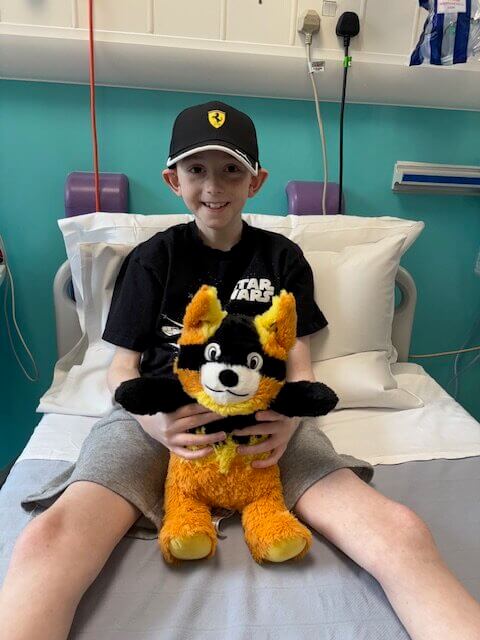
Kristie Scott completed Cancer Support UK’s Workplace Cancer Support Ambassador training and says she now feels better equipped to have a conversation with someone facing a cancer diagnosis
Kristie Scott is a former funeral director and now accredited estate planner. She launched her business The Death Planner in 2021, when it became apparent that the majority of the people she supported with funeral arrangements, had never discussed end-of-life wishes with their loved ones. “They simply have no idea what they would have wanted.”
Her experience as a professional will writer has convinced Kristie that there is a real need to talk openly about death, which is an inevitable part of life. “Preparing for the end can truly bring peace of mind and help us make the most of our finite lives.
“When a family knows their loved ones wishes, it can offer some certainty and comfort during what can be one of the most challenging times in their life.”
As Kristie’s business developed, she found herself advising an increasing number of cancer patients, particularly those with a secondary diagnosis. “I spend a lot of time with people who tell me very personal details, as they often don’t have anyone who they can talk to about their illness. I wanted to find out more about how to talk to someone with cancer.
“I needed to know the right words to use and to check that I wasn’t missing anything vital. So I signed up for Cancer Support UK’s Workplace Cancer Support Ambassador training, which appeared to offer everything I was looking for. From background information about cancer, cancer treatment and side effects to language and listening skills.
“There were nine other people on the course I attended, which was the perfect number I thought and meant that the breakout groups were small. I also found it helpful that we all came from different backgrounds. One person actually had a cancer diagnosis and gave us invaluable first-hand insight into what it is like living and especially working with cancer.
“One of the key points that I learnt during the training, was the importance of listening to people and letting them offload. We were given excellent pointers on how to actively listen, such as showing empathy (not sympathy), making eye contact and paraphrasing/asking for clarification.
“It was also reassuring to learn that it is normal to feel that you don’t know what to say. But now, due to the training, I feel better equipped to respond to someone when they tell me about their diagnosis. I have a greater understanding of cancer and how it develops, and this has given me the confidence to provide emotional support to clients when I am helping them with their estate plan.
“I am aware that I can’t offer a solution, but I find it comforting to know that the majority of people just want to be heard and not judged.
“Many of the people I talk with don’t have life insurance or critical illness cover (according to Direct Line 63% of people do not hold a life insurance policy, because they think it is too expensive). So they have no choice but to work and to manage their symptoms in the workplace. This is horrendous for someone who is terminally ill. They probably don’t want to be working when they have an unknown amount of time left and inevitably this will impact on their relationships with work colleagues.
“These people need plenty of support, especially if they are working from home in order to manage the side effects of their cancer. It can be very lonely for them. Their managers will inevitably have some pretty gritty conversations.
“I found the language side of the course very useful. We looked at different scenarios, such as typical opening conversations and suggested responses.
“I do believe that we have to be careful not to overthink what we are saying, though, and to try to appear as natural as possible.
“Another important aspect that resonated with me greatly, was the need to signpost correctly. That is one way you can really make a difference to someone’s life. If they are in despair, feeling lonely and don’t have anyone to turn to, you can provide practical comfort by putting them in touch with both major charities who offer services that are relevant to their needs , as well as smaller, community based charities, who could help with grants and someone to talk to.
“I thought the course was well worth attending. It provided exactly the right level of skills and knowledge, and was a good length. The handbook is brilliant! I downloaded it straight away and it is now a permanent reference guide for myself.
“I will certainly mention the Workplace Cancer Support Training to clients who are returning to work.
“Another aspect of the course that impressed me, was learning how to manage my own wellbeing. I spend a lot of time often being told very upsetting information and I wanted to know how to deal with my own emotions. The course taught me how to be aware of my feelings and how to deal with them.
“Thank you so much Cancer Support UK, your training will really help me in my role and enhance the service that I offer.”
If your organisation needs help delivering its wellbeing promises, Cancer Support UK’s Workplace Cancer Support Training courses https://cancersupportuk.org/training/ could provide exactly the solution you need. Get in touch with Olivia Gray, Head of Corporate Training and Partnerships: em: training@cancersupportuk.org and arrange to have a conversation.



